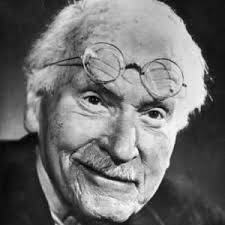
In the documentary Becoming Warren Buffet, Bill Gates’s father asked Buffet and his son to write down the one single factor that contributed most to their success. The two billionaires wrote down the same word: focus. Focus isn’t something we can afford to lose. When we lose focus, the thing we should be focusing on suffers. That thing can be a skill, habit, business, or relationship. Focus is a measure of conscious attention. The more focused we are on a thing, the more it occupies our conscious attention. Focus is a key ingredient of success because it inspires us to take action. This facet of focus relates to the things we do and the actions we take. But focus also influences mental health, the effects of which resonate in every other area of life.
Focusing on a thing can lead to action, but what about situations where action is not resourceful or even possible?
Take, for instance, cold weather, bad traffic, and the annoyances of school and work life. Unless these annoyances drive us to change cities, schools, or jobs, then focusing on them is a pointless exercise. Even more important examples involve relationships. Focusing on our defects, or those of others, magnifies them even when nothing can be done to change them. Unresolved emotional issues are an another example. Imagine somebody has wronged me and there’s no constructive opportunity to redress the situation. Plotting revenge is always an option, but an incredibly costly one. The best thing I can do in that situation is shift focus and watch my desire for revenge fade.
By what you ignore dies I am not talking about repression. Repression is when we bury past hurts and trauma and they exert power over our lives on a subconscious level. A pattern of repression begins when a past grievance consumes our focus so much that the mind cannot adequately process it. The mind’s focus on the issue transitions from the conscious to the subconscious realm, but never truly disappears. Life goes on, and the wound remains. The cure to repression is acceptance. Our mind clings to what we resist, be it a fact of our life or a perceived injustice, whereas the things we accept have a lot less staying power. In sum, there are issues in life that we can resolve only by choosing not to focus on them, thereby depriving them of power.

What you resist not only persists, but will grow in size.
Swiss Psychologist Carl Jung
Focus works in the opposite direction as well by growing the good. By focusing on the positive things in life (i.e. practicing gratitude), we magnify them such that they exert a bigger influence in our thought life and emotions. If the good things in our lives are represented by seeds, then gratitude is the water, sunlight, and fertilizer.
Finally, brothers, whatever is true, whatever is honorable, whatever is just, whatever is pure, whatever is lovely, whatever is commendable, if there is any excellence, if there is anything worthy of praise, think about these things.
Philippians 4:8
Some people forgive, while others hold grudges. Some people smell the roses, while others complain about the weather. Some people get excited about opportunities, while others see only the challenges. Focus can make a mountain out of a molehill and the opposite is also true. Focus is the X-Factor of success, according to two billionaires, and it’s not hard to see why.
